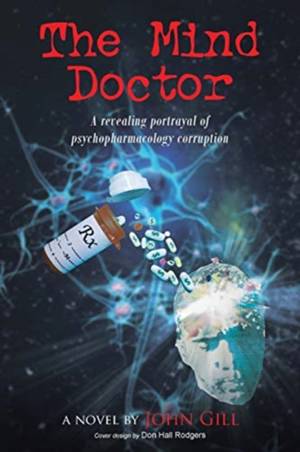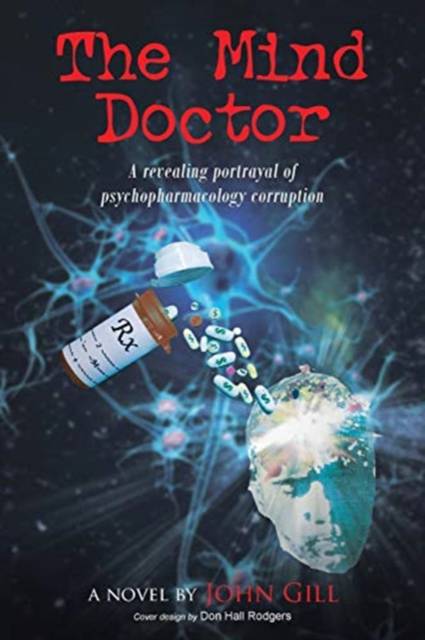
- Retrait en 2 heures
- Assortiment impressionnant
- Paiement sécurisé
- Toujours un magasin près de chez vous
- Retrait gratuit dans votre magasin Club
- 7.000.0000 titres dans notre catalogue
- Payer en toute sécurité
- Toujours un magasin près de chez vous
The Mind Doctor
A revealing portrayal of psychopharmacology corruption
John Gill
Livre broché | Anglais
34,95 €
+ 69 points
Description
By tracking the career of psychiatrist Maunt Thein, The Mind Doctor depicts examples of the corruption that has permeated psychiatry and pharmacology in the last fifty years. Maunt Thein grew up in Burma during the Ne Win dictatorship of 1962-1988. When six years old, because of a cultural phenomenon-a spirit festival-the boy entered a trance state but recovered under the guidance of an insightful psychiatrist. It was then that Thein decided to become a psychiatrist. As he grew up, Thein strived to develop his character so he could emulate the Buddha by reducing suffering. And he was mindful that people with mental illnesses suffered more than most others. He tried to maintain his idealism, but varied forces seemed designed to corrupt him. Chief among these corrosive forces were persistent rumors that his father, Brigadier General Maunt Saw, assassinated anyone who plotted to topple Ne Win from power. Another corrosive force was the flawed ways in which medicine was taught and practiced in Burma, where patients usually had to bribe doctors to get medical treatment. Through devious means, Maunt Saw enabled his son to bypass accreditation requirements to obtain a coveted medical residency in the United States. Thein eventually finagled his way into becoming a psychiatrist in Southern California. He changed his name to David Thein, but his new image did not keep him from accepting bribes from pharmaceutical companies for prescribing drugs of the most expensive kind, those having exclusive marketing rights while still under patent protection. In the preceding four decades, psychiatry and pharmacology had gradually unofficially, and shrewdly merged into psychopharmacology. To maximize profits, the two industries worked together to misinform the public that relied on psychotropic drugs. One of the most profitable tactics was for psychiatry to prescribe medications off-label for treating mental disorders, thus increasing the sale of drugs that the pharmaceutical companies already had in their inventories. Dr. Thein prescribed the powerful anticonvulsant Gabicon for Barry Vincent--with disasterous results. Prosperous pharmaceutical companies lavishly rewarded psychiatrists for prescribing drugs to benefit the drug makers financially rather than the patients medically. As a result of his overprescribing medications, some of Dr. Thein's patients took their own lives or died of drug-drug interactions. Because California's medicolegal authorities were not responsive to medical malpractice complaints, seven of the friends and family of the deceased patients banded together to extract justice on their own. The Mind Doctor was in for a big dose of his own medicine.
Spécifications
Parties prenantes
- Auteur(s) :
- Editeur:
Contenu
- Nombre de pages :
- 476
- Langue:
- Anglais
Caractéristiques
- EAN:
- 9781684564774
- Date de parution :
- 24-06-19
- Format:
- Livre broché
- Format numérique:
- Trade paperback (VS)
- Dimensions :
- 152 mm x 229 mm
- Poids :
- 693 g

Seulement chez Librairie Club
+ 69 points sur votre carte client de Librairie Club
Les avis
Nous publions uniquement les avis qui respectent les conditions requises. Consultez nos conditions pour les avis.





